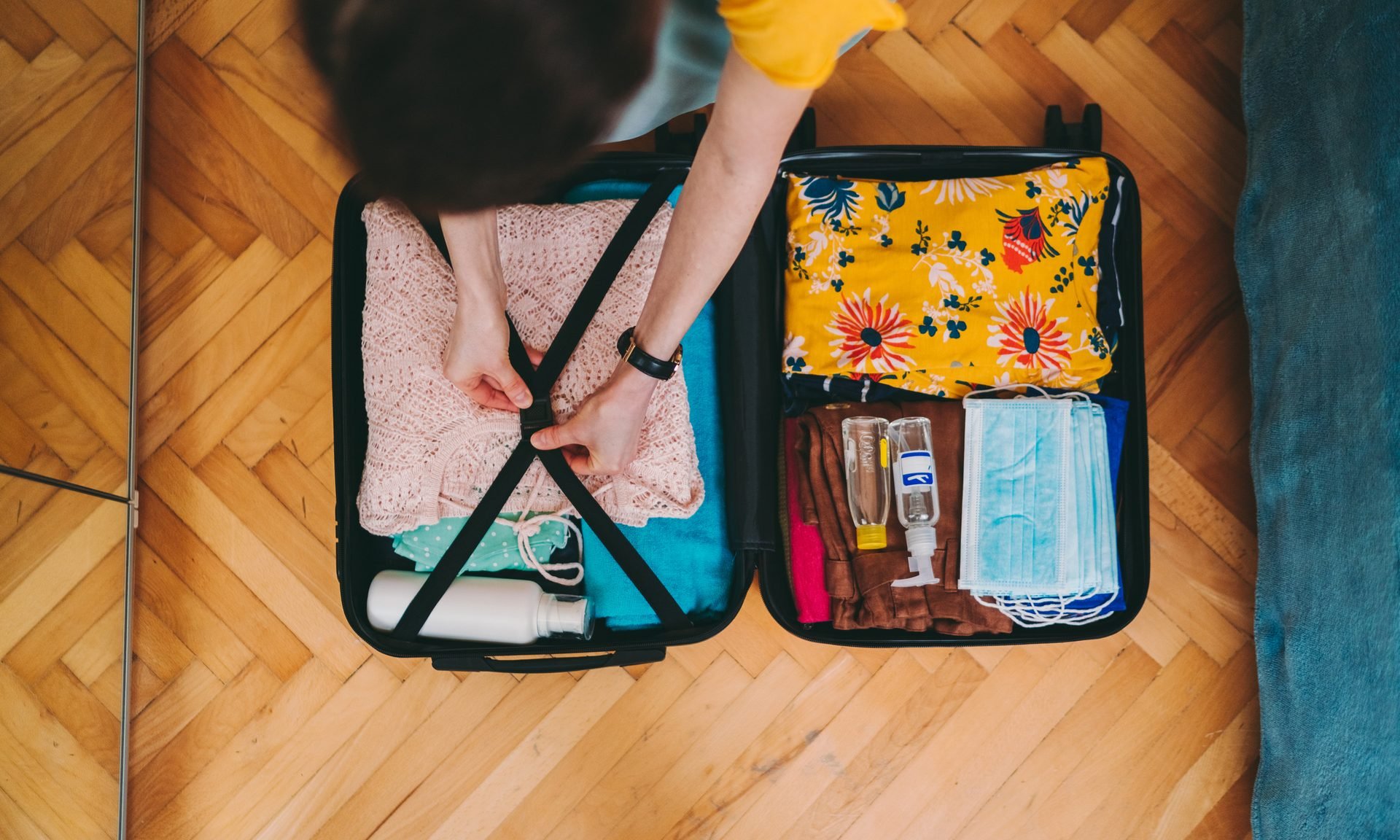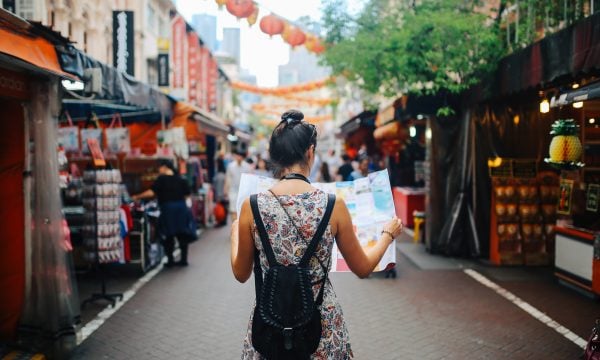7 Ways to Avoid Paying Checked Baggage Fees

Many or all of the products on this page are from partners who compensate us when you click to or take an action on their website, but this does not influence our evaluations or ratings. Our opinions are our own.
These days, finding an affordable flight is only half the battle.
You may be the world’s most adept airfare bargain hunter, but if you don’t take baggage fees into account, you could be overlooking a major cost.
Luckily, showing up at the check-in counter with a huge suitcase doesn’t have to cost a fortune — or even a single penny if you use the right strategy. For travelers looking to cut down on the cost of flying, here are tips for saving money on baggage fees.
How to avoid paying checked baggage fees
1. Know the fees
The first step to saving money on baggage fees is knowing what they are before you get to the airport. Do your research even before you book a flight. Different airlines charge different baggage fees depending on the route and the type of fare you purchased. Sometimes there are also additional charges for sporting equipment, like skis or surfboards.
If you know you have to check a bag, compare fees across the airlines in addition to comparing ticket prices.
» Learn more: A quick guide to airlines with free baggage
2. Use the right credit card
If you carry an airline credit card, chances are you don’t have to worry about baggage fees. That’s because several top airline credit cards offer a free first checked bag for the cardholder — and sometimes for companions traveling on the same itinerary as well.
If an airline charges a $30 one-way checked bag fee, you and your companion could end up spending $60 each, or $120 in total, just to get your bags to and from your destination. The Delta SkyMiles® Gold American Express Card comes with the free first checked bag perk for up to nine people on a reservation. If you use it frequently, that perk alone can pay for the annual fee several times over.
Get the 'Cheat Codes' to Cheaper Travel
Unlocking the secret to saving a ton on travel is easier than you think. 📤 Our free newsletter shows you how in 5 min. or less.

3. Book first or business class
If you’re trying to save money, booking a higher class may seem counterintuitive. You typically won’t save money doing so, but if you have several bags to check, a first- or business-class ticket may be more affordable overall.
Depending on your airline, folks who fly in a higher class have the privilege of checking bags at no additional cost. If you’re going to pay more in baggage fees, why not take the opportunity to fly in style? It’s at least worth it to check prices before you book.
4. Get elite status or fly with someone who has it
Many airline frequent flyer programs allow members with elite status to fly with checked bags for free. For example, United MileagePlus Premier members flying in the main cabin get baggage fees waived for one to three checked bags, depending on the level of their status.
Getting elite status just to avoid the baggage fee might sound difficult, but there are some pretty easy ways to do so. If you have elite status with a hotel chain, you might be able to get elite benefits on a partner airline, too. United has a status match program with Marriott, for example.
The World of Hyatt Credit Card gives cardholders automatic elite status on Hyatt, which also has a reciprocal benefits agreement with American Airlines.
» Learn more: Full review of the World of Hyatt Credit Card
5. Use a military discount
Many airlines do not charge a fee for military members to fly with checked luggage. JetBlue lets active-duty military personnel and their dependents on the same itinerary fly with two bags each at no cost when they’re traveling for leisure. There’s usually an even higher free bag allowance when military members are flying for duty. Check your airline about baggage policies for service members and be prepared to show your military ID when you check in.
» Learn more: Military travel discounts you won't want to miss
6. Check your bag at the gate
If checking a bag is more a preference than a need, don’t check your small rolling bag at the check-in counter. Instead, wait until you get to the gate.
If your flight is relatively full, airline employees may offer free gate bag check to make room for everyone’s carry-on luggage. Take advantage of this service to avoid the struggle of finding free space in the overhead bins. Just remember that this method is a gamble, though, and your bag would obviously still have to meet carry-on luggage requirements.
7. Pack light
When all else fails, the best way to avoid baggage fees is to not check any bags. Most airlines allow passengers on standard tickets one free carry-on and one free personal item, such as a purse or laptop bag.
In reality, your personal item could be an overstuffed backpack, just as long as it can fit under the seat in front of you. Be sure to check allowable dimensions of a personal item and the carry-on in advance, or you may be required to pay for a checked bag at the gate.
How to maximize your rewards
You want a travel credit card that prioritizes what’s important to you. Here are some of the best travel credit cards of 2026:
- Flexibility, point transfers and a large bonus: Chase Sapphire Preferred® Card
- No annual fee: Wells Fargo Autograph® Card
- Flat-rate travel rewards: Capital One Venture Rewards Credit Card
- Bonus travel rewards and high-end perks: Chase Sapphire Reserve®
- Luxury perks: American Express Platinum Card®
- Business travelers: Ink Business Preferred® Credit Card
Article sources
NerdWallet writers are subject matter authorities who use primary,
trustworthy sources to inform their work, including peer-reviewed
studies, government websites, academic research and interviews with
industry experts. All content is fact-checked for accuracy, timeliness
and relevance. You can learn more about NerdWallet's high
standards for journalism by reading our
editorial guidelines.
Limited Time Only: Earn $1,000 Toward Travel!
Capital One Venture Rewards Credit Card 
Travel

For a limited time, the
Capital One Venture Rewards Credit Card is offering new cardholders an especially rich bonus: Enjoy $250 to use on Capital One Travel in your first cardholder year, plus earn 75,000 bonus miles once you spend $4,000 on purchases within the first 3 months from account opening - that’s equal to $1,000 in travel!
More like this
Related articles








